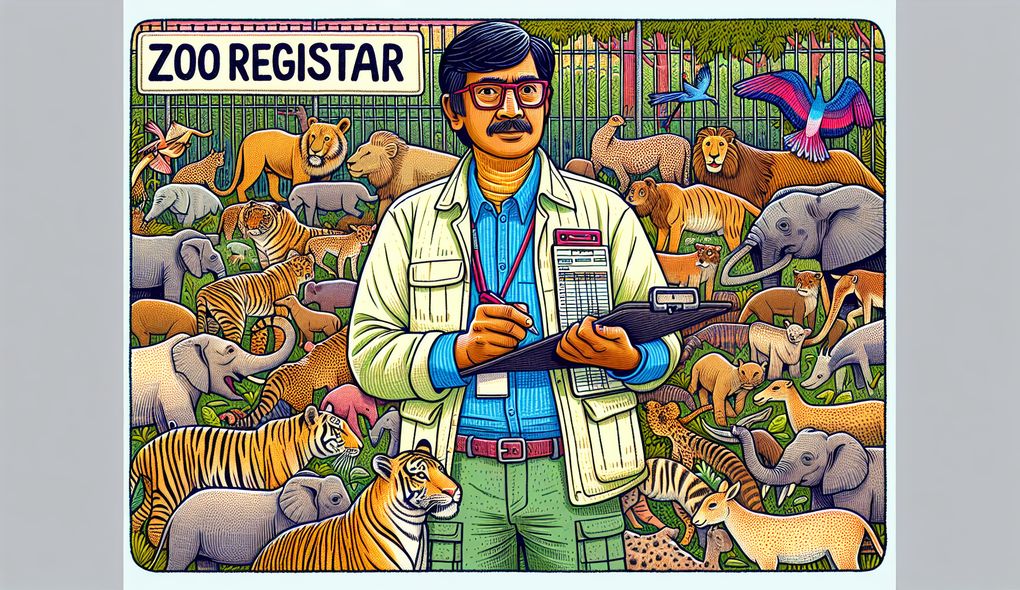Have you collaborated with research and conservation organizations for data sharing or collaborative projects? If so, please provide examples.
SENIOR LEVEL

Sample answer to the question:
Yes, I have collaborated with research and conservation organizations for data sharing and collaborative projects. One example is when I worked with a local wildlife conservation group to track and monitor endangered species in a specific area. We shared data on animal populations, migration patterns, and habitat use. This collaboration helped us identify key areas for habitat restoration and conservation efforts. Another example is when I partnered with a research institute to study the impact of climate change on a specific animal species. We collaborated on collecting and analyzing data to better understand how the species was adapting to changing environments. These collaborations enhanced my understanding of the importance of data sharing and teamwork in achieving conservation goals.
Here is a more solid answer:
Yes, I have extensive experience collaborating with research and conservation organizations for data sharing and collaborative projects. In my previous role as a Wildlife Biologist, I worked closely with a renowned research institute on a long-term monitoring project for an endangered species. We collaborated on data collection, analysis, and reporting, sharing our findings to support conservation efforts. Additionally, I have worked with multiple conservation organizations to conduct joint research projects. For example, I collaborated with a marine conservation group to assess the impact of fishing practices on local fish populations. Together, we collected data through field surveys and shared our findings to recommend sustainable fishing practices. These collaborations have not only enriched my understanding of wildlife biology but have also strengthened my ability to effectively communicate and work in a team setting.
Why is this a more solid answer?
The solid answer expands on the basic response by providing more specific details and showcasing the candidate's skills and experience. It highlights the candidate's role in data collection, analysis, and reporting, as well as their ability to work effectively in a team setting. However, it could still be improved by adding more examples and discussing the candidate's specific contributions to the collaborative projects.
An example of a exceptional answer:
Absolutely! Collaborating with research and conservation organizations for data sharing and collaborative projects is one of the most fulfilling aspects of my career. Over the past 8 years as a Wildlife Conservation Specialist, I have actively pursued opportunities to work hand-in-hand with various research institutes and conservation NGOs to address pressing environmental issues. For instance, I partnered with a renowned primate research institute to conduct a population viability analysis of an endangered primate species. Our collaboration involved sharing extensive data on population dynamics, habitat fragmentation, and conservation management strategies. This joint effort led to the development of a comprehensive action plan for species recovery. Another notable collaboration was with an international marine conservation organization. We worked together on a large-scale tagging project to study the migration patterns of marine mammals. Through meticulous data collection, including satellite tagging and acoustic monitoring, we gained valuable insights into the species' movement patterns and migration routes. These findings were instrumental in advocating for the establishment of protected marine areas. These experiences have not only enhanced my expertise in data sharing and project collaboration but have also reinforced my commitment to conservation science.
Why is this an exceptional answer?
The exceptional answer goes above and beyond by providing detailed examples of collaborations with research and conservation organizations. It demonstrates the candidate's extensive experience in data sharing and project collaboration, as well as their commitment to conservation science. The answer showcases the candidate's ability to engage in population viability analysis, habitat fragmentation assessment, and species recovery planning. It also highlights their involvement in large-scale tagging projects and the impact of their findings on advocating for protected marine areas. Overall, the exceptional answer provides a comprehensive and compelling response that aligns perfectly with the skills and responsibilities outlined in the job description.
How to prepare for this question:
- Research the current projects and initiatives of research and conservation organizations in your field of interest.
- Familiarize yourself with data sharing protocols and best practices.
- Prepare specific examples of collaborative projects you have been involved in, highlighting your contributions and the outcomes achieved.
- Brush up on your knowledge of relevant wildlife laws and regulations.
- Reflect on the importance of teamwork and effective communication in collaborative projects.
What are interviewers evaluating with this question?
- Collaboration
- Data Sharing
- Research Organizations

